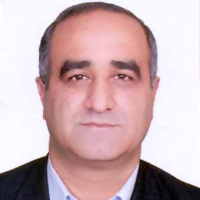Designing promoted Balance score card model in Iranian public organization
Balanced Scorecard offers a diverse set of performance indicators in four groups, including financial performance indicators, customer indicators, business process internal indicators and growth and learning indicators. The use of a balanced evaluation model has made good progress in evaluating organizations, but nevertheless, there has been a large gap in the field of social responsibility and ethics, and the developed model has been a response to this gap. This research seeks to design a developed model for evaluating the performance of government organizations.
In this research, the exploratory method and the field branch are used; Data collection was performed by field method and paired comparison questionnaire tool and then using multi-criteria decision making models (MCDM) and AHP model with fuzzy approach, the weight of the obtained indicators was normalized and displayed in five main areas as a dashboard. The statistical population of this study also consists of ten experts in the field of public administration in Tehran, who have an associate degree or higher with a history of more than ten years and have been selected by judgment.
The final weight of the criteria showed that at the level of senior managers, the criterion of "relationship with profiteers", at the level of middle managers, the criterion of "equality of social rights and non-discrimination" and at the level of basic managers, the criterion of "workplace accidents" have the highest priority and importance and the criteria of "product reliability", "customer satisfaction index regarding product delivery time" and "number of complaints", respectively, have the least importance among senior, middle and grassroots managers. The results showed that by comparing the final weight of the criteria in the whole model, the criterion of "workplace accidents" has the highest and the criterion of "number of complaints" has the lowest weight in the identified criteria.
-
Sustainable Development: from Policymaking to Practice (Explaining the Model of Public Policies Gap in the Subject Area of Environment)
Fatemeh Rezaei, Mojtaba Tabari *, Ali Farhadi Mahalli,
Quarterly Journal of Environmental Education and Sustainable Development, -
Presenting a Virtuous Leadership Model in Order to Establish a Service-Oriented Culture in Bank Melli Iran
Fereydoun Rashidi, Toraj Mogibi *, Majid Jahangirfard, Ali Mahdizadeh Ashrafi
Journal of Public Administration Perspective,


